The Moon, known as Chandra Graha in Vedic astrology, is a celestial force that governs the mind (manas), emotions, and intuition. As the planet closest to Earth, it profoundly influences our mental stability, emotional responses, and nurturing tendencies, symbolizing the subconscious and motherly energy. The Moon’s placement in a birth chart shapes an individual’s emotional well-being, adaptability, and capacity for connection. Balancing the Moon’s energy is essential for achieving mental peace, deepening intuition, and fostering emotional harmony.
In this article, we will explore how the Moon as a planet in Vedic astrology impacts your life, its dynamic relationships with other planets, its effects in various zodiac signs and houses, and powerful remedies to strengthen your Chandra Graha for a life of inner peace and emotional clarity.
The Story of Chandra Graha | Birth of Chandra Dev
In Vedic mythology, Chandra Dev, the Moon God, holds a prominent place as the embodiment of beauty, emotions, and the mind. The story of Chandra's birth is rooted in ancient texts, revealing his divine origins and celestial significance.
Chandra Dev was born from the churning of the cosmic ocean, known as the Samudra Manthan, a legendary event performed by the gods ( Devas ) and demons ( Asuras ) to obtain the nectar of immortality ( Amrita ). As the ocean churned, various celestial treasures emerged, including Chandra Dev, who was said to radiate a soothing, divine glow. His appearance was so magnificent that he immediately captured the admiration of the gods and became a significant figure in the cosmic order.
Chandra Dev was later married to the 27 daughters of King Daksha, known as the Nakshatras (lunar mansions). These daughters represent the constellations through which the Moon transits, shaping its influence in astrology. However, Chandra showed particular favoritism toward Rohini, one of the Nakshatras, which angered King Daksha. As a result, Daksha cursed Chandra, causing him to wane in brightness. The gods, realizing Chandra’s vital role in sustaining life and the universe, intervened and sought a resolution. Lord Shiva, moved by their pleas, modified the curse, allowing Chandra to wax and wane cyclically. This gave rise to the lunar phases, symbolizing the Moon’s rhythmic journey of growth and decline.
Chandra Dev is often associated with the soothing qualities of the mind and the nurturing energy of the mother. His presence in Vedic astrology highlights emotional balance, intuition, and adaptability, making him a critical influence on human life.
This timeless story of Chandra Dev not only explains the Moon’s phases but also symbolizes the importance of balance, resilience, and harmony in life.
Qualities and Astrological Significance of the Moon
The Moon represents the subtle yet powerful forces that govern the emotional and subconscious aspects of life. Its characteristics include:
Emotional Strength: Governs feelings, moods, and emotional resilience, influencing how we connect with others.
Nurturing Energy: Reflects love, compassion, and the ability to provide care and support, often linked to maternal qualities.
Adaptability: Like its waxing and waning phases, the Moon teaches flexibility and adjustment to life’s changing circumstances.
Imagination and Intuition: Enhances creativity, dreams, and intuitive insights, fostering inner awareness.
Sensitivity: Governs how we react to situations, with an emphasis on empathy and emotional understanding.
In astrology, the Moon is crucial for:
Mind and Emotions : Reflecting mental stability, thought patterns, and emotional responses.
Relationships: Representing the bond with the mother, nurturing qualities, and the capacity for care.
Health : Governing mental health, digestion, and emotional vitality.
Nakshatras: Determining the Nakshatra at birth, which shapes personality traits and life path.
The Moon’s placement in a birth chart directly influences one’s emotional stability, intuition, and adaptability. Understanding the Moon’s characteristics allows for a deeper connection to its energies, promoting balance and personal growth.
Chandra Dev’s influence in Vedic astrology shapes emotional stability, mental clarity, and adaptability, making him essential for balancing life’s ebb and flow.
Karakas (Significators) of the Moon in Vedic Astrology
In Vedic astrology, Karakas or significators are planets that naturally represent specific aspects of life, serving as key indicators of various themes such as emotions, relationships, health, and wealth, based on their inherent qualities and energies. The karakas of the Moon are:
Mind and Emotions
The Moon is the natural Karka for the mind (manas), emotions, and mental stability.
It reflects how a person perceives and reacts to the world emotionally.
Mother
The Moon represents the relationship with one’s mother and maternal figures, as well as the nurturing and caregiving aspects of life.
Mental Health
Governs emotional and mental well-being, including intuition, adaptability, and psychological resilience.
A strong Moon promotes mental clarity, while a weak or afflicted Moon may lead to mood swings, anxiety, or mental stress.
Fluids and Nourishment
Represents liquids, nourishment, and bodily fluids, symbolizing the sustenance that supports life. The Moon governs water retention and influences the flow of bodily fluids.
Wealth and Comfort
As a benefic planet, it signifies wealth, luxuries, and a life of comfort when well-placed in the chart.
Beauty and Charm
The Moon signifies beauty, grace, and a pleasing demeanor, enhancing the natural charm of an individual.
Fertility and Creativity
Associated with fertility, childbirth, and creative pursuits, the Moon nurtures growth and imagination.
Travel and Mobility
Governs short journeys, changes in residence, and adaptability to new environments.
Nakshatras
The Moon determines the Nakshatra (lunar mansion) at the time of birth, which plays a pivotal role in defining personality traits and life patterns.
Each of these karakatvas highlights the Moon’s role as a dynamic force shaping an individual’s destiny and inspiring them to fulfill their potential with clarity and purpose.
Effects of Moon in Vedic Astrology
In Vedic astrology, the Moon (Chandra Graha) governs the mind (manas), emotions, and subconscious, making it a critical influence on mental stability and emotional well-being. Its placement in the birth chart affects intuition, adaptability, and nurturing tendencies, shaping how individuals connect with themselves and others. A strong Moon fosters inner peace, clarity, and balanced emotions, while a weak or afflicted Moon can lead to mood swings, anxiety, and challenges in relationships. The Moon also influences daily life, as its phases reflect constant change, symbolizing growth, introspection, and renewal.
Moon in Different Zodiac Signs
The Moon’s placement in each zodiac sign influences personality traits, strengths, and challenges.
Here’s a quick look at how it affects each sign:
Moon in Aries (Chandra in Mesh Rashi)
Traits and Characteristics:
Emotional assertiveness, courage, and enthusiasm.
Strengths
: Quick to act, confident, and thrives in leadership roles.
Challenges:
Impulsiveness, temper issues, and a lack of patience.
Read More: Aries Zodiac Sign (Mesh Rashi)
Moon in Taurus (Chandra in Vrishabha Rashi)
Traits and Characteristics:
Emotional stability, practicality, and love for comfort.
Strengths:
Loyal, nurturing, and enjoys luxury and material pleasures.
Challenges:
Resistance to change and overattachment to material possessions.
Read More: Taurus Zodiac Sign (Vrish Rashi)
Moon in Gemini (Chandra in Mithuna Rashi)
Traits and Characteristics:
Curious, adaptable, and communicative.
Strengths:
Mentally active, sociable, and thrives in dynamic environments.
Challenges:
Restlessness, overthinking, and difficulty in staying focused.
Read More: Gemini Zodiac Sign (Mithun Rashi)
Moon in Cancer (Chandra in Karka Rashi)
Traits and Characteristics:
Emotional depth, intuition, and nurturing qualities.
Strengths:
Compassionate, deeply connected to roots, and empathetic.
Challenges:
Over-sensitivity, mood swings, and emotional dependency.
Read More: Cancer Zodiac Sign (Kark Rashi)
Moon in Leo (Chandra in Simha Rashi)
Traits and Characteristics:
Confidence, emotional expressiveness, and a need for recognition.
Strengths:
Warm-hearted, creative, and natural leaders.
Challenges:
Dramatic emotional displays and seeking external validation.
Read More: Leo Zodiac Sign (Simha Rashi)
Moon in Virgo (Chandra in Kanya Rashi)
Traits and Characteristics:
Practical, analytical, and detail oriented.
Strengths:
Problem-solving abilities, logical approach, and discipline.
Challenges:
Overanalyzing situations, excessive worry, and emotional detachment.
Read More: Virgo Zodiac Sign (Kanya Rashi)
Moon in Libra (Chandra in Tula Rashi)
Traits and Characteristics:
Harmonious, diplomatic, and relationship-focused.
Strengths:
Charming, sociable, and prioritizes balance and fairness.
Challenges:
Indecisiveness and a tendency to please others at their own expense.
Read More: Libra Zodiac Sign (Tula Rashi)
Moon in Scorpio (Chandra in Vrishchika Rashi)
Traits and Characteristics:
Intense, passionate, and emotionally transformative.
Strengths:
Resilient, deeply intuitive, and strong-willed.
Challenges:
Emotional turbulence, trust issues, and possessiveness.
Read More: Scorpio Zodiac Sign (Vrishchik Rashi)
Moon in Sagittarius (Chandra in Dhanu Rashi)
Traits and Characteristics:
Optimistic, adventurous, and philosophical.
Strengths:
Emotionally driven by higher ideals, loves learning, and visionary.
Challenges:
Avoids emotional depth, lack of focus, and restlessness.
Read More: Sagittarius Zodiac Sign (Dhanu Rashi)
Moon in Capricorn (Chandra in Makara Rashi)
Traits and Characteristics:
Disciplined, practical, and emotionally controlled.
Strengths:
Hardworking, reliable, and thrives in structured environments.
Challenges:
Suppresses emotions, appears detached, and overly serious.
Read More: Capricorn Zodiac Sign (Makar Rashi)
Moon in Aquarius (Chandra in Kumbha Rashi)
Traits and Characteristics:
Innovative, humanitarian, and emotionally detached.
Strengths:
Focused on collective well-being, intellectual, and adaptable.
Challenges:
Difficulty expressing emotions and prioritizing personal connections.
Read More: Aquarius Zodiac Sign (Kumbh Rashi)
Moon in Pisces (Chandra in Meena Rashi)
Traits and Characteristics:
Compassionate, intuitive, and spiritually inclined.
Strengths:
Creative, empathetic, and deeply connected to spirituality.
Challenges:
Over idealism, escapism, and vulnerability to emotional overwhelm.
Read More: Pisces Zodiac Sign (Meen Rashi)
Moon in Different Houses of the Horoscope
The Moon’s placement in various houses of a horoscope brings focus to different life areas combining with the effects of each house:
Moon in 1st House (Ascendant)
The Moon in the 1st house strongly influences personality, emotions, and outward behavior, shaping how an individual is perceived and how they connect with the world.
Emotional Expression
: These individuals are emotionally sensitive and expressive, often wearing their feelings on their sleeves, making them empathetic and approachable.
Charismatic Personality:
They tend to have an attractive and magnetic aura, with a charm that draws others toward them.
Mood Swings
: The Moon’s fluctuating nature can cause mood swings and emotional instability, especially if the Moon is weak or afflicted.
Read More: 1st House of Astrology: The House of Self
Moon in 2nd House
The Moon in the 2nd house influences wealth, family values, and communication style.
Attachment to Family
: These individuals have a strong emotional bond with their family and heritage, often placing high value on family relationships.
Fluctuating Finances
: Their financial stability may vary, reflecting the Moon’s changing phases, though creativity can help them earn wealth.
Ecpressive Speech:
A pleasant and emotionally expressive manner of speaking is often observed, making them persuasive communicators.
Read More: 2nd House of Astrology: Wealth, Values, and Possessions
Moon in 3rd House
The Moon in the 3rd house enhances communication, creativity, and courage.
Creative Expression:
They are imaginative and excel in fields requiring artistic or intellectual expression.
Bond with Siblings
: Emotional ties with siblings are significant, with a supportive or nurturing dynamic.
Restlessness
: There may be a tendency toward indecisiveness or seeking constant stimulation, especially if the Moon is weak.
Read More: 3rd House in Astrology: The House of Communication
Moon in 4th House
The Moon in the 4th house strengthens emotional security and connection to home.
Attachment to Roots
: A deep connection to home, family, and one’s cultural heritage is prominent.
Strong Maternal Bond:
These individuals often share a close relationship with their mother, who greatly influences their life.
Emotional Stability:
When well-placed, the Moon provides inner peace and contentment; however, an afflicted Moon may lead to emotional instability.
Read More: 4th House of Astrology: Home, Family, and Emotional Foundation
Moon in 5th House
The Moon in the 5th house focuses on creativity, children, and joy.
Creative Talent:
They excel in artistic and intellectual pursuits, often expressing emotions through creativity.
Emotional Connection to Children
: A nurturing relationship with children or a strong desire to have them is common.
Fluctuating Joy:
Emotional highs and lows may affect their ability to fully enjoy life’s pleasures.
Read More: 5th House in Astrology: Meaning, Ruler, and Significance
Moon in 6th House
The Moon in the 6th house emphasizes daily routines, health, and service.
Focus on Health
: They may be highly concerned about their health, but anxiety can sometimes worsen their well-being.
Emotional Investment in Work:
These individuals are deeply connected to their work and may thrive in service-oriented roles.
Stress and Overthinking:
If afflicted, the Moon may cause stress or an overactive mind.
Read More: 6th House of Astrology: Meaning, Significance, and Ruler
Moon in 7th House
The Moon in the 7th house affects relationships, partnerships, and public dealings.
Emotionally Driven Relationships:
These individuals seek emotional fulfillment in their partnerships and are deeply invested in their partners.
Popularity:
Their emotional expressiveness often makes them well-liked and socially successful.
Dependency Issues
: They may become overly dependent on their partners for emotional stability.
Read More: 7th House of Astrology: Meaning, Ruler, and Significance
Moon in 8th House
The Moon in the 8th house highlights transformation, emotions, and mysteries.
Emotional Depth:
These individuals experience intense emotions and are drawn to uncovering secrets or engaging in deep introspection.
Interest in Mysticism:
A natural inclination toward the occult, spirituality, or transformational experiences is often observed.
Emotional Turbulence
: If afflicted, the Moon can cause anxiety, fears, or instability in life.
Read More: 8th House Astrology: Meaning, Ruler, and Significance
Moon in 9th House
The Moon in the 9th house emphasizes spirituality, travel, and higher learning.
Spiritual Connection
: These individuals often find emotional satisfaction through spiritual or philosophical pursuits.
Love for Travel:
A desire to explore new places and cultures emotionally fulfills them.
Emotional Guidance
: They may be seen as emotionally supportive mentors or guides.
Read More: 9th House in Astrology: Meaning, Ruler, and Significance
Moon in 10th House
The Moon in the 10th house focuses on career, public image, and recognition.
Emotional Investment in Career:
They are deeply attached to their professional success and may excel in public-facing roles.
Popular Persona
: Their emotional approachability and nurturing demeanor often bring admiration in their careers.
Fluctuating Career:
The Moon’s influence may cause ups and downs in career progress.
Read More: 10th House of Astrology: Meaning, Ruler, and Career Significance
Moon in 11th House
The Moon in the 11th house governs friendships, social networks, and aspirations.
Regards friendships:
They thrive emotionally in large groups and value friendships deeply.
Achievement of Goals
: They are emotionally driven to pursue and achieve their aspirations.
Validation:
There may be a tendency to rely heavily on validation from their network.
Read More: 11th House of Astrology: Meaning, Ruler, and Career Significance
Moon in 12th House
The Moon in the 12th house emphasizes solitude, spirituality, and inner peace.
Spiritual Growth:
A deep connection to spirituality or meditation brings emotional stability.
Desire for Isolation
: These individuals find peace in isolation and introspection.
Escapism:
If afflicted, the Moon may lead to emotional withdrawal or escapist tendencies.
Read More: 12th House of Astrology: Meaning, Ruler, and Hidden Significance
Moon’s Conjunction with Other Planets
When the Moon forms conjunctions with other planets, it influences how we express and process our emotions, as well as our mental and intuitive responses to life’s experiences. Each planetary conjunction with the Moon brings its own set of dynamics, blending the Moon's nurturing and emotional energy with the qualities of the other planets. In this section, we will explore the effects of the Moon's conjunctions with the Sun, Mars, Mercury, Jupiter, Venus, Saturn, Rahu, and Ketu, focusing on how these combinations impact emotional stability, relationships, and personal growth.
Moon Conjunction with the Sun:
When Moon is in conjunction with the Sun, it creates a balance between emotions and self-expression. This conjunction enhances the person’s ability to express their feelings openly, giving a deep connection between their inner world and outward self. The individual becomes more emotionally aware and sensitive. However, it can also lead to fluctuations in mood or over-identification with one's emotions, making it difficult to separate personal feelings from external situations. This conjunction encourages self-reflection and emotional clarity but requires caution to avoid emotional overreaction.
Read More: Sun (Surya Graha) in Astrology
Moon Conjunction with Mars:
The Moon-Mars conjunction brings emotional intensity and quick reactions. This alignment creates a person who is highly emotional and impulsive, with strong instincts and an energetic drive to act on their feelings. They are likely to be passionate, bold, and energetic in their approach to life. However, the conjunction can also cause emotional outbursts, irritability, or rash actions, especially when feeling threatened or upset. The person needs to find balance in managing emotional impulses and tempering them with patience and thoughtfulness.
Read More: Mars (Mangal Graha) in Astrology
Moon Conjunction with Mercury:
When Moon aligns with Mercury, it enhances the individual’s emotional intelligence and communicative abilities. This combination makes the person more sensitive to others’ emotions and capable of expressing their feelings clearly. The individual is likely to have a deep understanding of both emotional and intellectual matters. However, it can lead to overthinking or emotional confusion, as the mind (Mercury) and emotions (Moon) may become too intertwined, leading to difficulty in making clear decisions. This conjunction encourages empathetic communication but requires mental clarity to avoid emotional confusion.
Read More: Mercury (Budh Graha) in Astrology
Moon Conjunction with Jupiter:
The Moon-Jupiter conjunction brings emotional expansion, optimism, and a deep sense of nurturing. This combination encourages a positive outlook on life and enhances emotional wisdom. The person may have a strong desire to help others, particularly in a compassionate, loving manner. There is a tendency toward emotional generosity and idealism, often leading to a fulfilling life. However, this conjunction can also lead to emotional overindulgence or excessive idealism, which can create unrealistic expectations or emotional disappointments. Balance between emotional generosity and practical expectations is essential.
Read More: Jupiter (Guru Graha) in Astrology
Moon Conjunction with Venus:
The Moon-Venus conjunction creates an individual who is emotionally attuned to love, beauty, and harmony. This combination enhances emotional sensitivity in relationships and a deep appreciation for beauty and art. The person is likely to be nurturing, affectionate, and harmonious in their personal interactions. However, the conjunction can also lead to emotional dependence, a desire for constant validation, or attachment to idealized forms of love. The person may need to cultivate emotional independence and avoid excessive attachment to external sources of affection and comfort.
Read More: Venus (Shukra Graha) in Astrology
Moon Conjunction with Saturn:
When Moon is in conjunction with Saturn, it creates emotional restraint, discipline, and responsibility. This conjunction can make the person emotionally reserved, introspective, and serious, often seeking emotional security through structure and responsibility. The individual may feel emotionally burdened, or isolated, and may struggle with expressing their feelings freely. However, this combination also brings emotional maturity, resilience, and the ability to overcome emotional obstacles. The person learns to navigate emotional hardships with discipline and patience, ultimately developing a strong sense of emotional control and stability.
Read More: Saturn (Shani Graha) in Astrology
Moon Conjunction with Rahu:
The Moon-Rahu conjunction can create emotional confusion, instability, or heightened sensitivity to external influences. Rahu amplifies the Moon’s emotional tendencies, leading to fluctuating moods and unpredictable emotional responses. This conjunction can cause the person to feel emotionally disconnected or lost, often leading them to seek emotional fulfillment through illusions or unattainable desires. There may be a tendency to chase after material goals in an attempt to fill an emotional void. The person must learn to separate emotional needs from external distractions and ground their emotions in reality.
Read More: Rahu (North Node of Moon) in Astrology
Moon Conjunction with Ketu:
The Moon-Ketu conjunction brings deep emotional introspection, detachment, and spiritual focus. Ketu’s influence reduces the emotional attachment to the material world, often leading the person to seek emotional fulfillment through spiritual or inner growth. This conjunction can create emotional withdrawal, mood swings, or a sense of emotional disconnection. While the person may experience emotional isolation, it can also lead to a deeper understanding of one’s emotional needs and a heightened sense of inner peace. This conjunction encourages emotional healing and spiritual detachment, but the individual must balance these tendencies to avoid emotional suppression or neglect.
Read More: Ketu (South Node of Moon) in Astrology
These conjunctions of the Moon with other planets influence emotional expression, mental clarity, and personal growth. Each alignment brings unique strengths and challenges, highlighting the need to balance emotional sensitivity with rational thinking and spiritual awareness.
House Aspects of the Moon in Vedic Astrology
In Vedic astrology, the Moon aspects the 7th house from its position with its full (100%) aspect. Unlike planets like Jupiter, Mars, or Saturn that have multiple aspects, the Moon’s influence is singular and specific, casting its nurturing and intuitive energy directly across the chart. This aspect emphasizes the Moon’s role in balancing emotional dynamics, relationships, and partnerships.
The Moon’s aspect is most impactful when it is closely aligned by degrees with the planet or house it influences. However, its strength varies depending on its phase (waxing or waning) and placement in the chart. A waxing Moon (Shukla Paksha) is considered stronger and more beneficial, while a waning Moon (Krishna Paksha) can exhibit weaker or more fluctuating effects.
House Aspects of the Moon
1st House: Aspects the 7th house, enhancing emotional bonds, partnerships, marriage, and public interactions. It fosters sensitivity and empathy in relationships.
2nd House: Aspects the 8th house, influencing emotional depth, shared resources, transformation, and hidden matters.
3rd House: Aspects the 9th house, impacting intuition in spiritual pursuits, emotional connection to higher education, and long-distance journeys.
4th House: Aspects the 10th house, shaping emotional involvement in career, public image, and authority. It brings a nurturing quality to professional life.
5th House: Aspects the 11th house, emphasizing emotional fulfillment through friendships, aspirations, and gains. It strengthens social connections and creative aspirations.
6th House : Aspects the 12th house, focusing on subconscious matters, spiritual growth, isolation, and emotional balance in foreign connections or expenses.
7th House : Aspects the 1st house, influencing self-awareness, emotional well-being, and how one presents themselves to the world.
8th House : Aspects the 2nd house, shaping emotional attachment to family, wealth, and values. It brings intuition to matters of stability and security.
9th House: Aspects the 3rd house, influencing emotional courage, communication, and close familial bonds.
10th House: Aspects the 4th house, bringing focus to emotional stability, home life, and the nurturing of familial roots.
11th House: Aspects the 5th house, influencing emotional creativity, connection with children, and fulfillment in romantic relationships.
12th House : Aspects the 6th house, shaping emotional resilience in health, service, competition, and daily routines.
The Moon’s aspect reflects its inherently fluid and nurturing nature, which can either stabilize or unsettle the aspected house depending on its strength and dignity. A strong Moon fosters emotional depth, adaptability, and nurturing relationships, while a weak or afflicted Moon can lead to emotional volatility, dependency, or confusion.
Planetary Aspects of the Moon in Vedic Astrology
In Vedic astrology, the Moon's aspect has a unique emotional and intuitive influence on the planets or houses it aspects. The Moon casts its 7th-house aspect (180°), bringing its nurturing, sensitive, and perceptive qualities to the aspected planet.
Below is a detailed overview of how the Moon impacts each planet:
Moon’s Aspect on the Sun
Represents the synergy of the mind (Moon) and ego (Sun). When harmonious, it fosters self-confidence; when challenging, it creates emotional turmoil and ego clashes.
Moon’s Aspect on Mars
Sparks emotional passion and energy. Can lead to either courage or emotional volatility based on the dignity of Mars.
Effect:
Amplifies drive, ambition, and impulsiveness. A strong Mars with a sensitive Moon balances emotional and physical action.
Moon’s Aspect on Mercury
Moon’s aspect on mars, fuses intellect (Mercury) with emotions (Moon). This can create a blend of emotional intelligence or lead to overthinking and mood swings.
Effect:
Influences communication style, decision-making, and mental clarity. A strong Mercury enhances adaptability in relationships, while a weak Mercury may cause emotional confusion.
Moon’s Aspect on Jupiter
Moon’s aspect on Jupiter combines nurturing qualities (Moon) with wisdom and expansion (Jupiter). Indicates emotional growth and optimism.
Effect:
Enhances emotional generosity, spirituality, and hope. This aspect creates a deep emotional bond with higher learning, religion, or children.
Moon’s Aspect on Venus
This aspects represent emotional harmony in love and creativity. This aspect can create heightened sensitivity to beauty and relationships.
Effect:
Promotes emotional connection in romantic relationships and artistic endeavors. A weak Venus can lead to dissatisfaction in love or creativity.
Moon’s Aspect on Saturn
Moon’s aspect on Saturn balances emotional sensitivity with practicality and discipline. This aspect can create a struggle between emotional needs and responsibilities.
Effect:
May bring emotional maturity or, if afflicted, emotional suppression and fears. It teaches patience through emotional challenges.
Moon’s Aspect on Rahu
Creates intense emotional attachment to desires and worldly pursuits. This aspect may generate emotional instability or spiritual growth.
Effect:
Amplifies ambition and cravings for material success. If malefic, it may lead to emotional dissatisfaction or delusions.
Moon’s Aspect on Ketu
Encourages emotional detachment and introspection. This aspect can lead to spiritual awakening or confusion in emotional matters.
Effect
: Brings emotional depth and connection to spiritual realms. However, it may cause moodiness or a lack of emotional clarity.
Unique Highlights of the Moon's Aspect
The Moon’s aspects are less forceful but deeply intuitive, affecting the aspected planet’s energy in a gentle yet profound way.
The Moon’s waxing phase strengthens its influence, while the waning phase brings subtlety or even emotional struggles.
The results of the Moon's aspect depend on its sign placement, nakshatra, and association with benefic or malefic planets.
The emotional impact varies significantly depending on the houses involved, shaping an individual's psychological and material experiences.
Moon’s (Chandra) Dasha in Vedic Astrology
The Moon’s (Chandra) Dasha lasts for 10 years in Vedic astrology. This period is deeply emotional and transformative, highlighting mental well-being, relationships, creativity, and inner peace. During Chandra Dasha, the Moon's nurturing and intuitive energy strongly influences various aspects of life, including emotional stability, familial connections, spiritual growth, and material comforts.
It serves as a time when individuals are encouraged to connect with their emotional core, nurture meaningful relationships, and enhance their intuitive and creative abilities. This phase often brings introspection, self-care, and a focus on balancing personal and professional life, paving the way for emotional fulfillment and inner harmony.
Key Effects of Chandra Dasha
Emotional Well-Being and Relationships
A period that emphasizes emotional connections, nurturing relationships, and strengthening family bonds.
Individuals may experience heightened sensitivity, deeper empathy, and a stronger connection with their loved ones.
Challenges may include emotional instability, mood swings, or strained relationships, particularly with the mother or maternal figures.
Creativity and Intuition
Chandra Dasha enhances intuitive abilities, imagination, and creativity, making it a favorable time for artistic pursuits or careers involving caregiving and healing.
It encourages self-reflection, fostering spiritual growth and a deeper understanding of one’s emotions.
Challenges may include overthinking, excessive emotional attachment, or difficulty balancing practical decisions with emotional responses.
Material Comforts and Home Life
A focus on home, domestic comforts, and financial stability is common during this period.
Individuals may acquire property, vehicles, or improve their living conditions, finding solace in a secure and harmonious environment.
Challenges may involve unexpected expenses, changes in residence, or emotional dissatisfaction despite material gains.
Mental Peace and Spiritual Growth
Chandra Dasha promotes a journey inward, encouraging practices like meditation and introspection to attain mental peace.
It highlights the importance of nurturing both the mind and soul, paving the way for emotional healing and spiritual alignment.
Challenges may include confronting past emotional wounds or adapting to periods of solitude and introspection.
Challenges During Chandra Dasha
Emotional Instability
Mood Swings:
Individuals may experience frequent changes in mood, making it difficult to stay emotionally balanced.
Overthinking:
A tendency to dwell on past events or future uncertainties can lead to mental exhaustion.
Relationship Struggles
Strained Family Bonds:
Conflicts, especially with the mother or maternal figures, may arise during this period.
Emotional Dependency
: Over-attachment in relationships can create tension and dissatisfaction.
Financial Instability
Unexpected Expenses
: Sudden expenditures may disrupt financial stability.
Difficulty Saving:
Emotional spending or financial mismanagement may hinder progress.
Health Concerns
Stress-Related Issues
: Anxiety, insomnia, and fatigue are common during a weak Moon phase.
Digestive or Fluid Imbalances:
Problems like water retention or hormonal disturbances may arise.
Lack of Focus and Decision-Making
Indecisiveness
: Difficulty in making clear and practical decisions may delay progress.
Mental Distractions
: Emotional upheavals can lead to a lack of concentration on important tasks.
Over-Attachment or Detachment
Clinging to the Past
: Emotional attachment to memories or people may block growth.
Isolation:
Feeling disconnected from others can lead to loneliness and introspection.
Anxiety and Fear of the Unknown
Fear of Failure:
Overwhelming fear of not meeting expectations may cause stress.
Uncertainty:
Difficulty adapting to change can create a sense of insecurity.
Challenges in Spiritual and Emotional Growth
Emotional Turmoil:
Struggles with understanding or managing deep-seated emotions.
Lack of Direction
: Feeling spiritually or emotionally stuck, leading to frustration.
Effects of Moon Transit
The Moon transits through each zodiac sign approximately every 2.25 days, making it the fastest-moving planet in Vedic astrology. Its transit brings frequent shifts in emotions, moods, and focus, influencing specific areas of life based on the house it occupies.
Here’s a house-wise breakdown of its effects:
(Note: “~” sign means approximately)
Moon Transit Through the 1st House
Duration:
~2.25 days
Effects:
Increases emotional sensitivity and self-awareness. Individuals may feel more introspective, concerned about their personal image, or moody.
Focus Area
: Self-expression, physical appearance, and emotional state.
Moon Transit Through the 2nd House
Duration
: ~2.25 days
Effects
: Focus shifts to financial matters and family. Emotional attachment to material possessions and values may intensify.
Focus Area
: Wealth, speech, and familial harmony.
Moon Transit Through the 3rd House
Duration
: ~2.25 days
Effects
: Enhances communication and curiosity. A good time for networking, travel, or starting creative projects.
Focus Area
: Siblings, short trips, and self-expression.
Moon Transit Through the 4th House
Duration:
~2.25 days
Effects
: Focus turns inward, with an emphasis on home, family, and emotional security. Can bring a longing for comfort and solitude.
Focus Area
: Domestic life, emotional well-being, and maternal relationships.
Moon Transit Through the 5th House
Duration:
~2.25 days
Effects
: Inspires creativity and romance. This period heightens emotional involvement in children, hobbies, and love affairs.
Focus Area:
Pleasure, artistic pursuits, and speculative investments.
Moon Transit Through the 6th House
Duration:
~2.25 days
Effects:
Brings attention to health, routine, and work challenges. Emotions may feel strained due to stress or conflicts.
Focus Area
: Wellness, workplace dynamics, and responsibilities.
Moon Transit Through the 7th House
Duration
: ~2.25 days
Effects
: Relationships take center stage. A time to focus on partnerships, both romantic and professional, with emotional intensity.
Focus Area:
Partnerships, commitments, and public dealings.
Moon Transit Through the 8th House
Duration:
~2.25 days
Effects
: Deep emotional transformations and focus on hidden aspects of life. This transit may bring anxiety or a desire to explore mysteries.
Focus Area
: Intimacy, inheritance, and psychological insights.
Moon Transit Through the 9th House
Duration:
~2.25 days
Effects:
Inspires emotional involvement in higher learning, spiritual pursuits, or travel. A good time for exploring philosophical or religious beliefs.
Focus Area:
Education, long journeys, and faith.
Moon Transit Through the 10th House
Duration
: ~2.25 days
Effects:
Heightens focus on career ambitions and public image. Emotional investment in work may bring recognition or stress.
Focus Area
: Profession, status, and reputation.
Moon Transit Through the 11th House
Duration:
~2.25 days
Effects
: Encourages emotional involvement in friendships and social networks. A good time for pursuing goals and group activities.
Focus Area:
Gains, aspirations, and community.
Moon Transit Through the 12th House
Duration:
~2.25 days
Effects
: Promotes introspection and emotional withdrawal. Individuals may seek solitude or focus on spiritual practices.
Focus Area:
Subconscious mind, isolation, and spiritual growth.
| Planets | Relation with Moon |
|---|---|
| Sun | Friends |
| Mars | Friends |
| Mercury | Friends |
| Jupiter | Friends |
| Venus | Enemy |
| Saturn | Enemy |
| Rahu | Neutral |
| Ketu | Neutral |
Malefic & Benefic Moon in Astrology
In Vedic astrology, the Moon (Chandra) governs emotions, intuition, and the mind. A benefic Moon brings emotional stability, mental clarity, and nurturing energy, while a malefic Moon may lead to mood swings, emotional instability, or difficulties in relationships and mental well-being. However, it is essential to understand that no planet is inherently an enemy; each acts as a teacher, presenting challenges to help individuals grow emotionally, mentally, and spiritually.
The ascendant (Lagna) also plays a crucial role in determining whether the Moon acts as a benefic or malefic in an individual's chart. Factors like the Moon’s house rulership, its phase (waxing or waning), and its dignity in the chart (exalted, debilitated, or neutral) greatly influence its impact.
The Moon's benefic or malefic nature is determined by its placement in specific houses. Certain houses amplify its nurturing and stabilizing qualities, while others bring challenges or emotional struggles.
Below is a comprehensive house-wise breakdown:
| House | Benefic or Malefic | Explanation |
|---|---|---|
| 1st House | Benefic | The Moon in the 1st house strengthens personality, emotional resilience, and self-awareness. It brings mental clarity and charisma. |
| 2nd House | Benefic | Enhances wealth, family harmony, and eloquent speech. It promotes emotional attachment to material security. |
| 3rd House | Neutral/Malefic | Encourages courage and communication skills but may cause restlessness or strained sibling relationships. |
| 4th House | Benefic | Brings peace at home, emotional stability, and a strong connection with the mother. Supports domestic comforts. |
| 5th House | Benefic | Boosts creativity, romance, intelligence, and relationships with children. Encourages emotional fulfillment and artistic expression. |
| 6th House | Malefic | Causes emotional stress, conflicts, and potential health issues (e.g., mental strain, digestion problems). Can bring hidden enemies. |
| 7th House | Neutral/Benefic | Supports partnerships and public relations. Emotional connection to relationships is strong but can bring mood swings in partnerships if afflicted. |
| 8th House | Malefic | Creates emotional instability, fear, and hidden anxieties. Can lead to sudden changes, inheritance issues, or health challenges. |
| 9th House | Benefic | Favors spiritual growth, wisdom, and emotional optimism. Encourages faith, travel, and learning from experiences. |
| 10th House | Benefic | Promotes career success, public recognition, and emotional involvement in professional life. Enhances leadership abilities. |
| 11th House | Neutral/Benefic | Supports financial gains, fulfillment of aspirations, and strong friendships. However, emotional expectations from social circles may be high. |
| 12th House | Malefic | Brings emotional detachment, isolation, or potential mental health issues. However, it can promote spiritual growth and introspection if well-aspected. |
In Vedic astrology, no planet is inherently 'malefic'; each serves as a teacher, guiding individuals toward growth and resilience. Challenges from planets like Saturn, Mars, Rahu, or Ketu highlight areas for improvement. Saturn fosters patience and discipline, Mars builds courage, Rahu pushes us to confront fears, and Ketu encourages spiritual detachment. These experiences are opportunities to strengthen emotional resilience and gain wisdom. Astrology helps us understand these lessons, enabling us to embrace growth and align with our higher potential.
How to Balance the Effects of Moon
To harmonize the Moon’s energy, cultivate emotional balance, nurture relationships, and show care and gratitude towards maternal figures. By embodying the Moon’s qualities of empathy, adaptability, and intuition, one can achieve mental peace and deeper connections with others.
Lessons of the Moon (Karmic Alignment)
The Moon governs emotions, intuition, and nurturing energy. To balance its influence, focus on emotional stability, meaningful relationships, and self-care.
Below are simple steps to harmonize the Moon's energy:
- Practice mindfulness, meditation, and journaling to stabilize fluctuating emotions.
- Show gratitude, care, and understanding towards your mother or maternal figures, as the Moon is deeply tied to maternal energy.
- Accept life’s ups and downs gracefully, embracing flexibility and emotional resilience.
- Engage in artistic pursuits and trust your intuition to guide decisions.
- Maintain a balanced diet, stay hydrated, and soothe stress with calming practices.
Other Remedies for Moon (Chandra Graha)
Rudraksha:
Wear an energized 2 Mukhi Rudraksha from Rudra Centre, to harmonize the Moon's energy, promoting emotional balance, nurturing relationships, and fostering a deep sense of inner peace and intuition.
Click on the link to buy 2 Mukhi Rudraksha
Gemstone:
Wearing a Pearl gemstone is highly recommended to strengthen the Moon's influence, enhancing emotional stability, intuition, and nurturing energy while promoting inner peace and harmonious relationships.
Click on the link to buy Pearl gemstone
Puja:
Perform Chandra Dosh Nivaran Puja or chant the mantra “Om Shram Shreem Shrom Sah Chandramase Namah” to honor the Moon, seeking its blessings for emotional balance, intuition, and mental peace.
Click on the link to book Chandra Puja
Yantra
: Place a Chandra Yantra in your home or workspace to harness and attract positive lunar energy, promoting emotional stability, intuition, and harmonious relationships.
Click on the link to buy Chandra Yantra
Donation:
Donate items such as white cloth, white rice, white thread, white pearl, white sugar crystals, or camphor on Mondays to harmonize the Moon's energy and invite emotional stability, peace, and intuition.
Click on the link to make donation
Mantra Japa: Chant the Chandra Beej Mantra “ॐ श्रां श्रीं श्रौं सः चन्द्रमसे नमः” to invoke the Moon’s blessings, fostering emotional balance, mental peace, and intuitive strength.
Conclusion
The Moon (Chandra) is a fundamental Graha in Vedic astrology, deeply influencing the mind, emotions, intuition, and overall mental well-being. As the ruler of the mind, the Moon’s placement, phase, and strength in the birth chart shape how individuals perceive and respond to the world around them. Its movement through the zodiac signs and houses reflects shifting emotional tides, influencing relationships, creativity, and spiritual alignment. The Moon’s role as a karaka (significator) for emotions, the mother, and mental clarity emphasizes its nurturing and sensitive nature.
Understanding and aligning with the Moon's energy is key to emotional stability and inner harmony. This involves practices like strengthening bonds with maternal figures, cultivating mindfulness, balancing intuition and logic, and performing remedies such as chanting Chandra Beej Mantras, wearing a pearl, donating white items, or wearing a 2 Mukhi Rudraksha to channel its nurturing energy. These efforts not only balance the Moon’s influence but also foster self-awareness and personal growth.
Ultimately, the Moon teaches us the importance of adaptability, compassion, and introspection. By honoring its lessons, wearing the recommended gemstones or Rudraksha, and harmonizing its energy, we can navigate life’s emotional waves with grace, finding peace within and building meaningful connections with the world around us.


-in-Astrology.jpg)
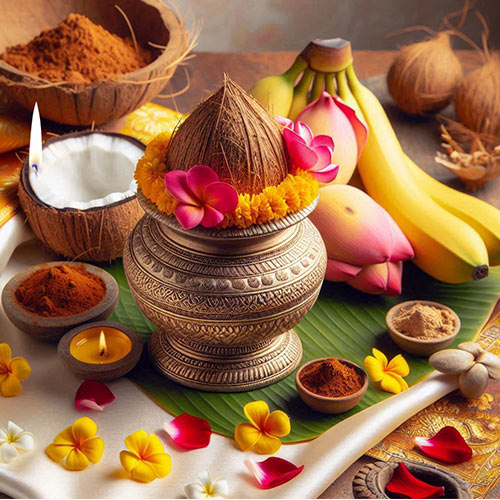
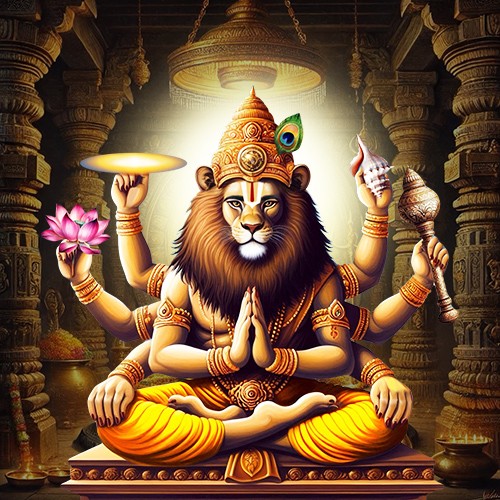
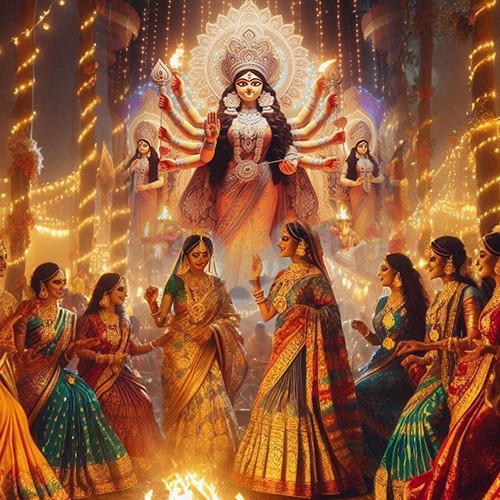
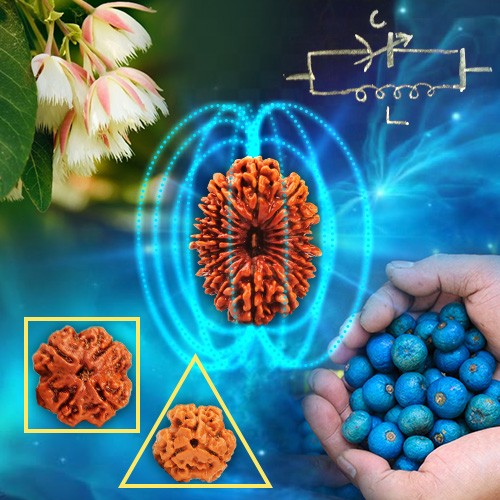

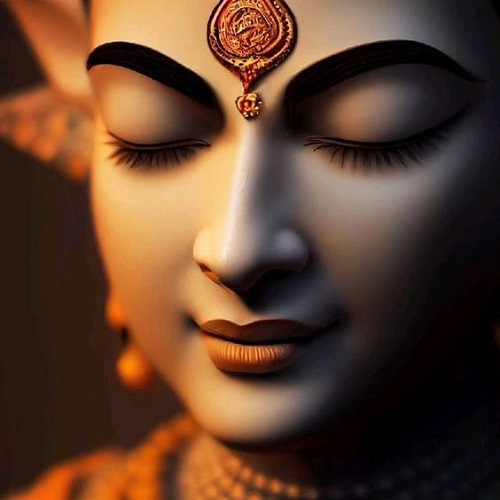
.jpg)
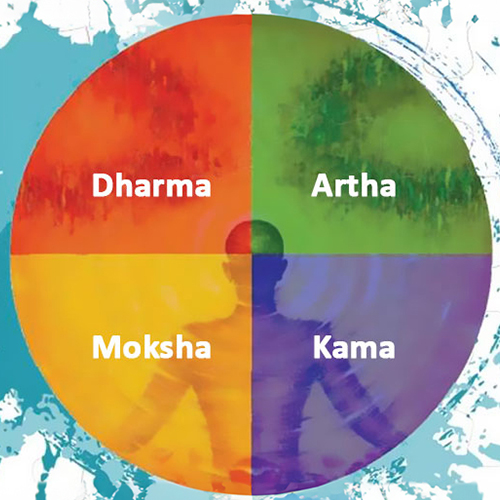

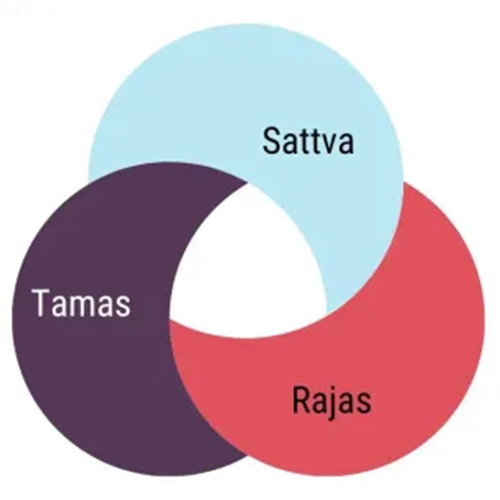
Comments 0
Leave your thought here